NAUIYU PILGRIMAGE, August 2019
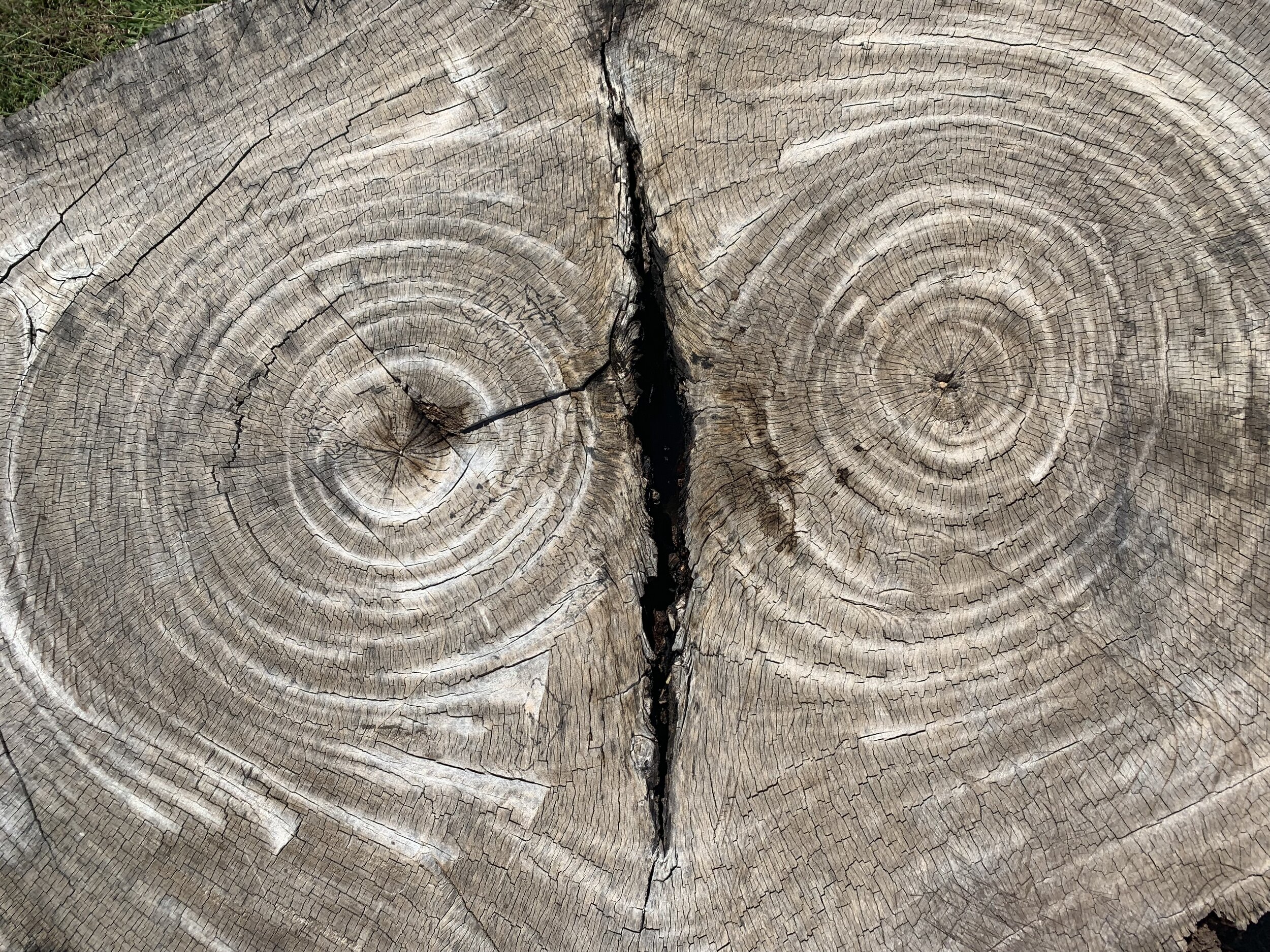
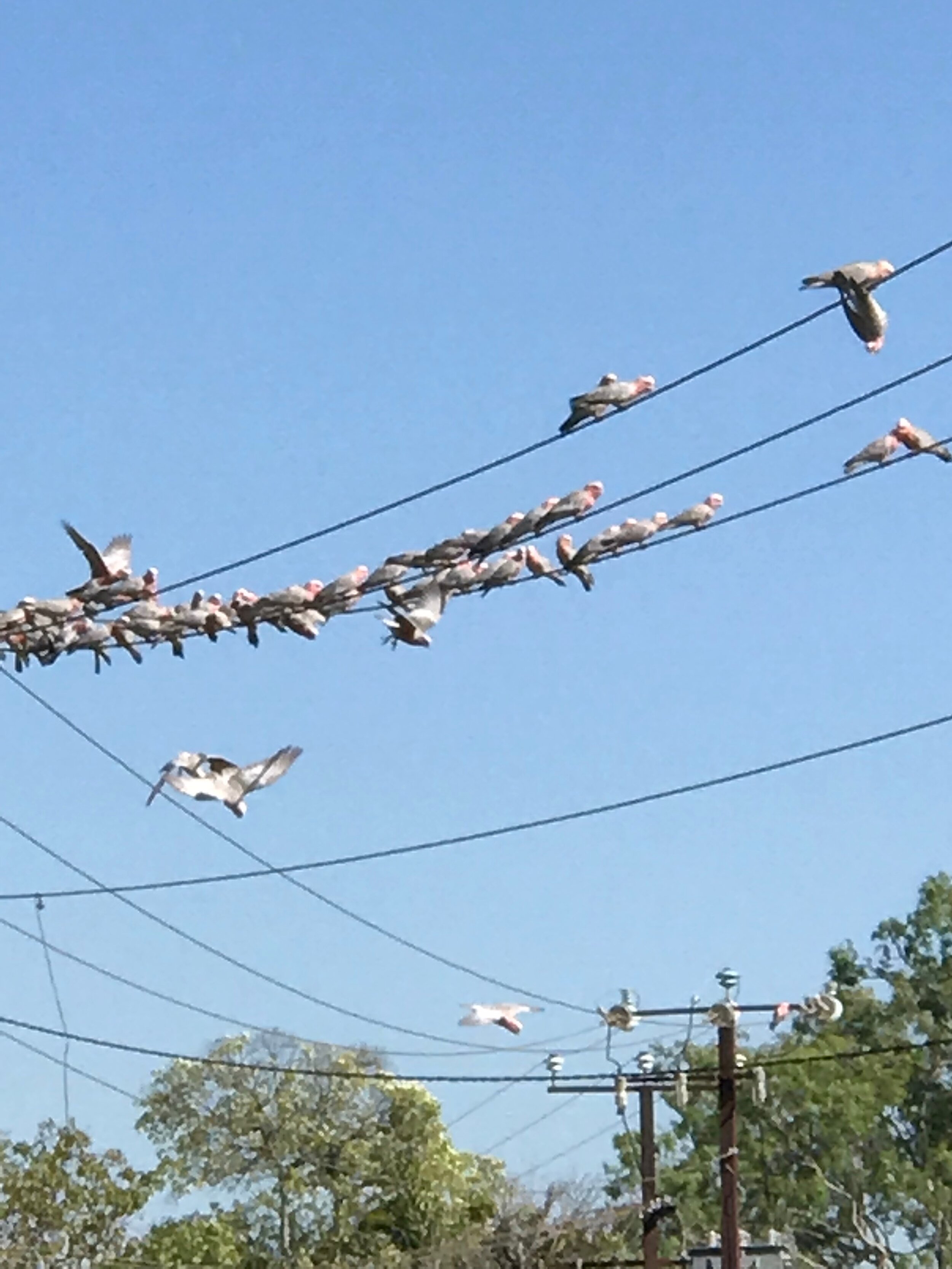
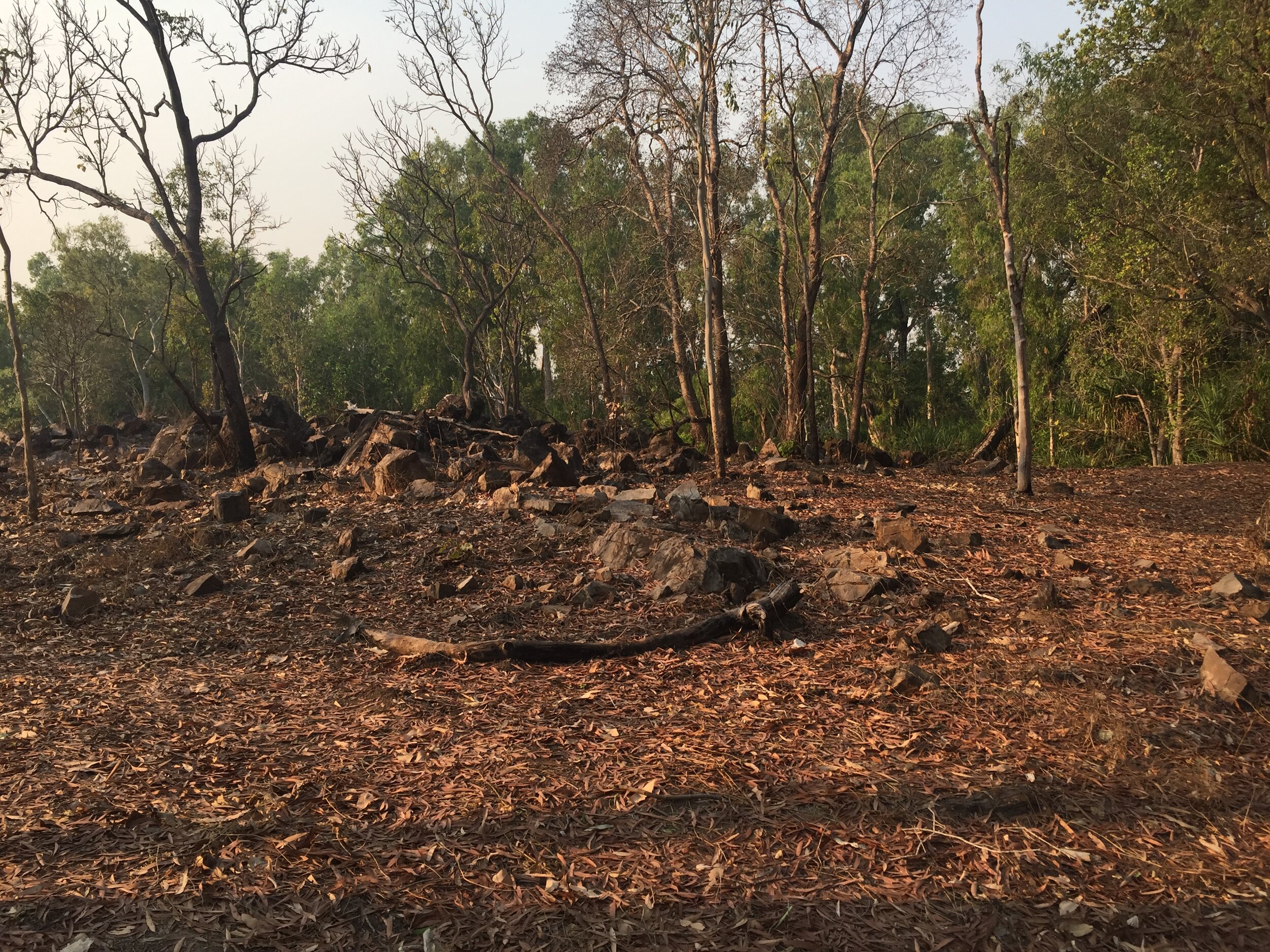
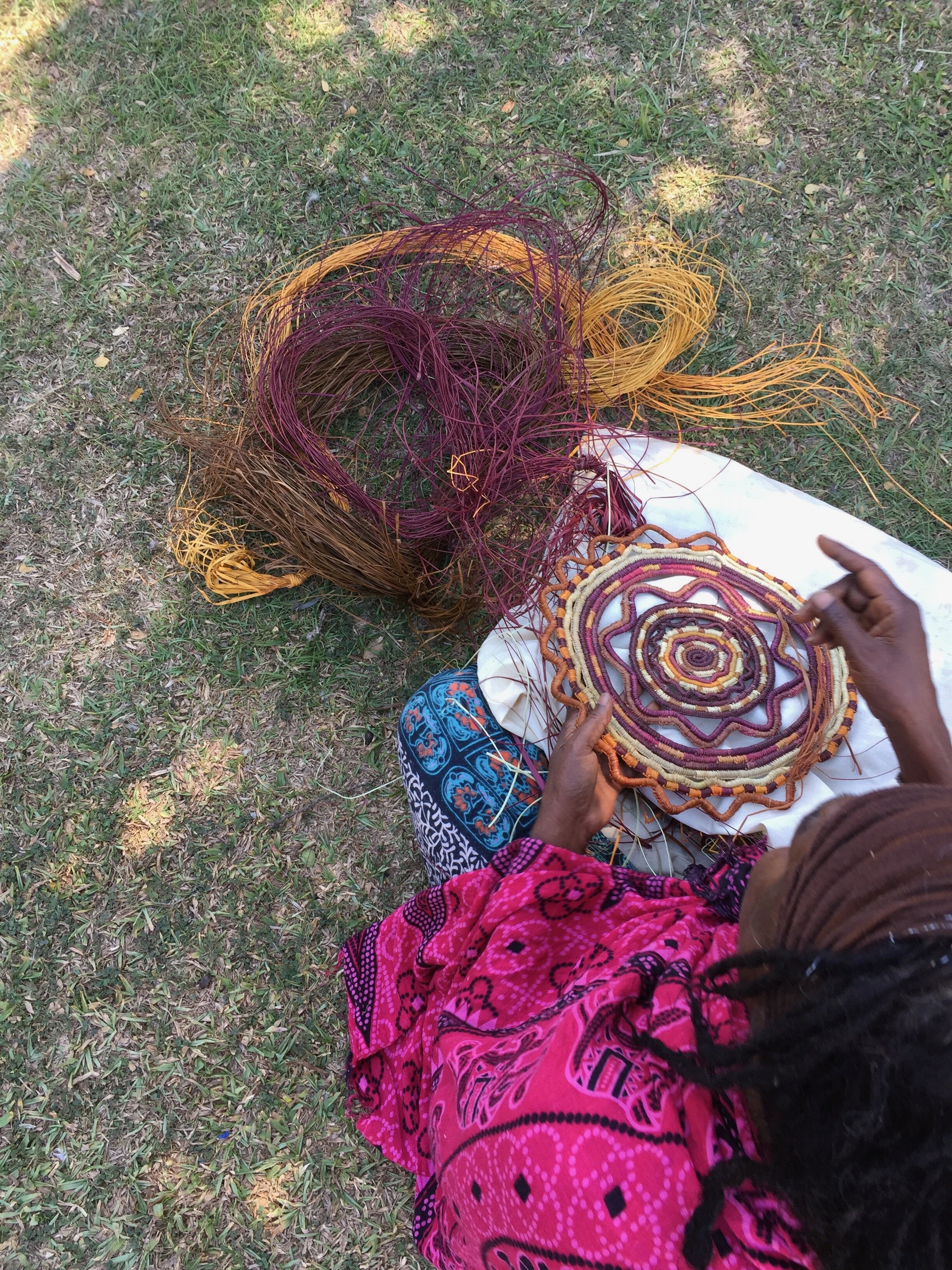
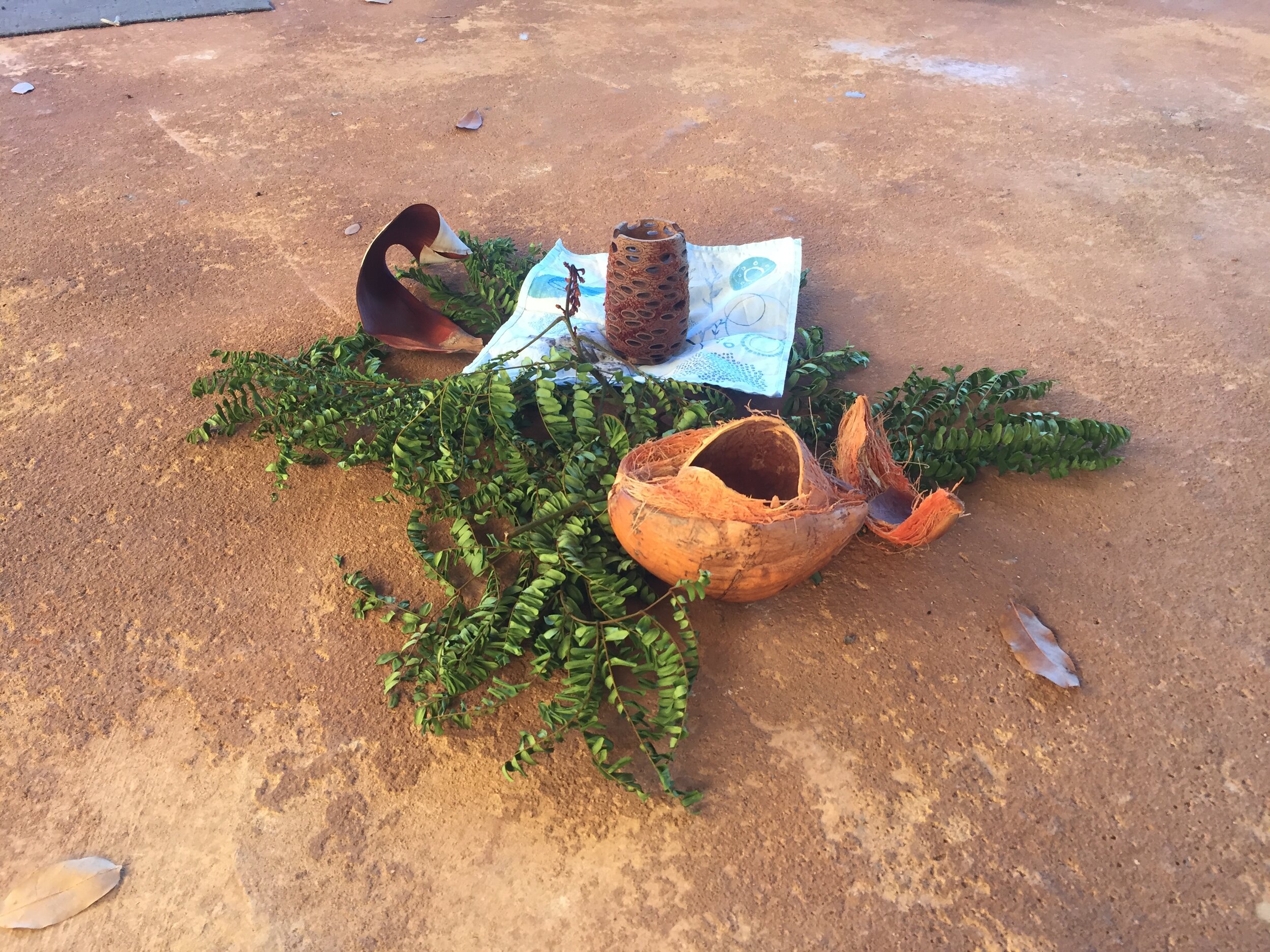
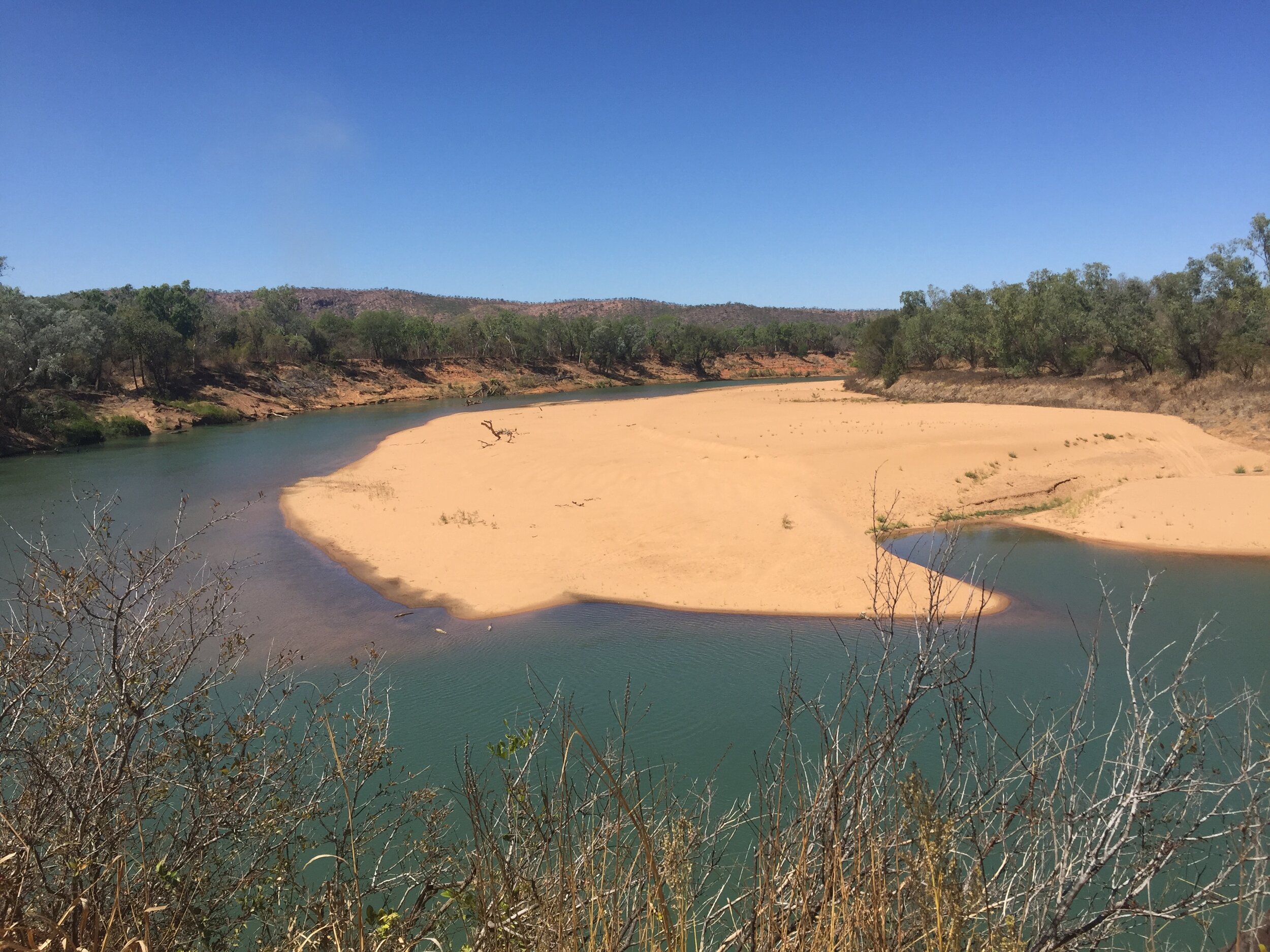
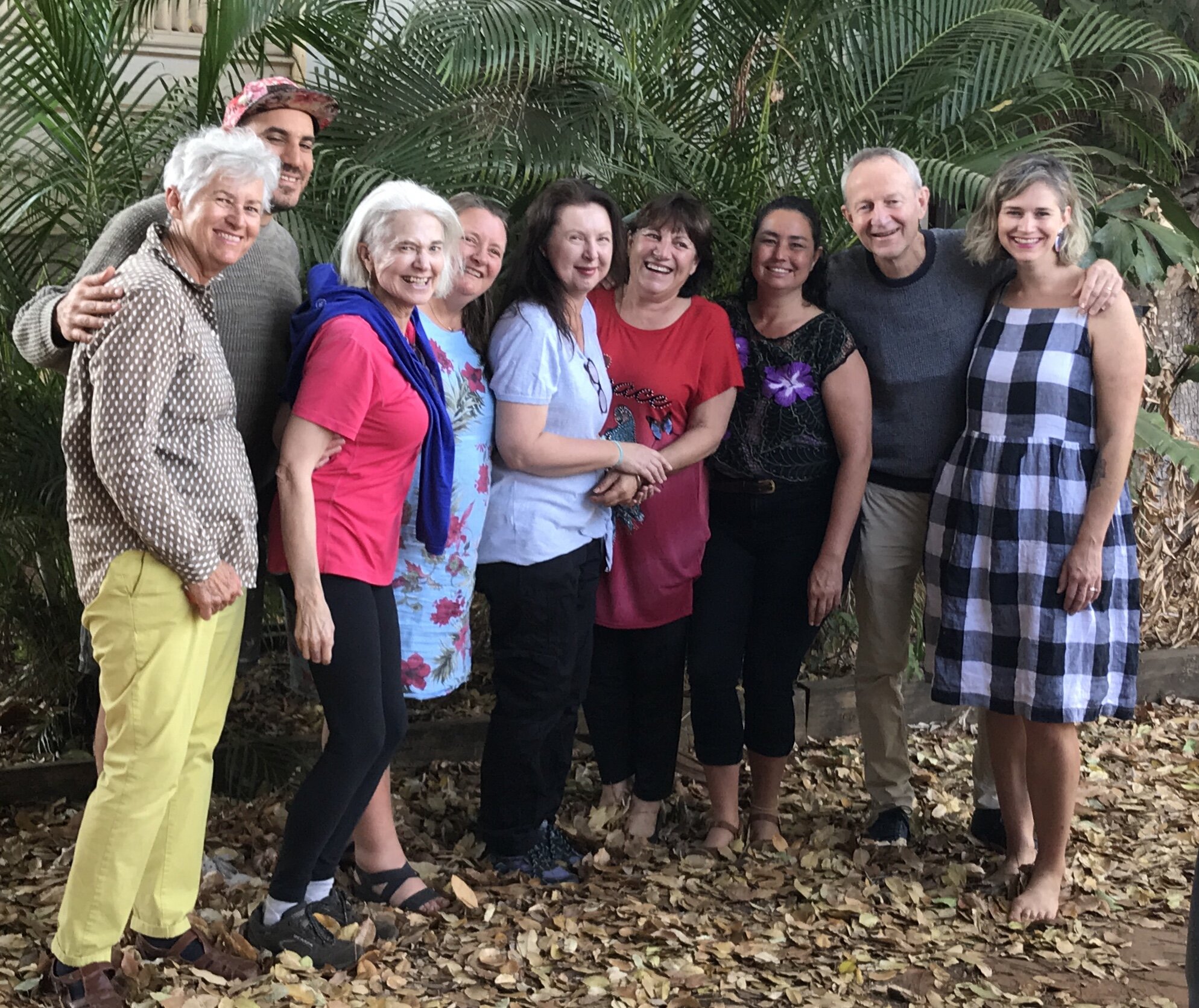
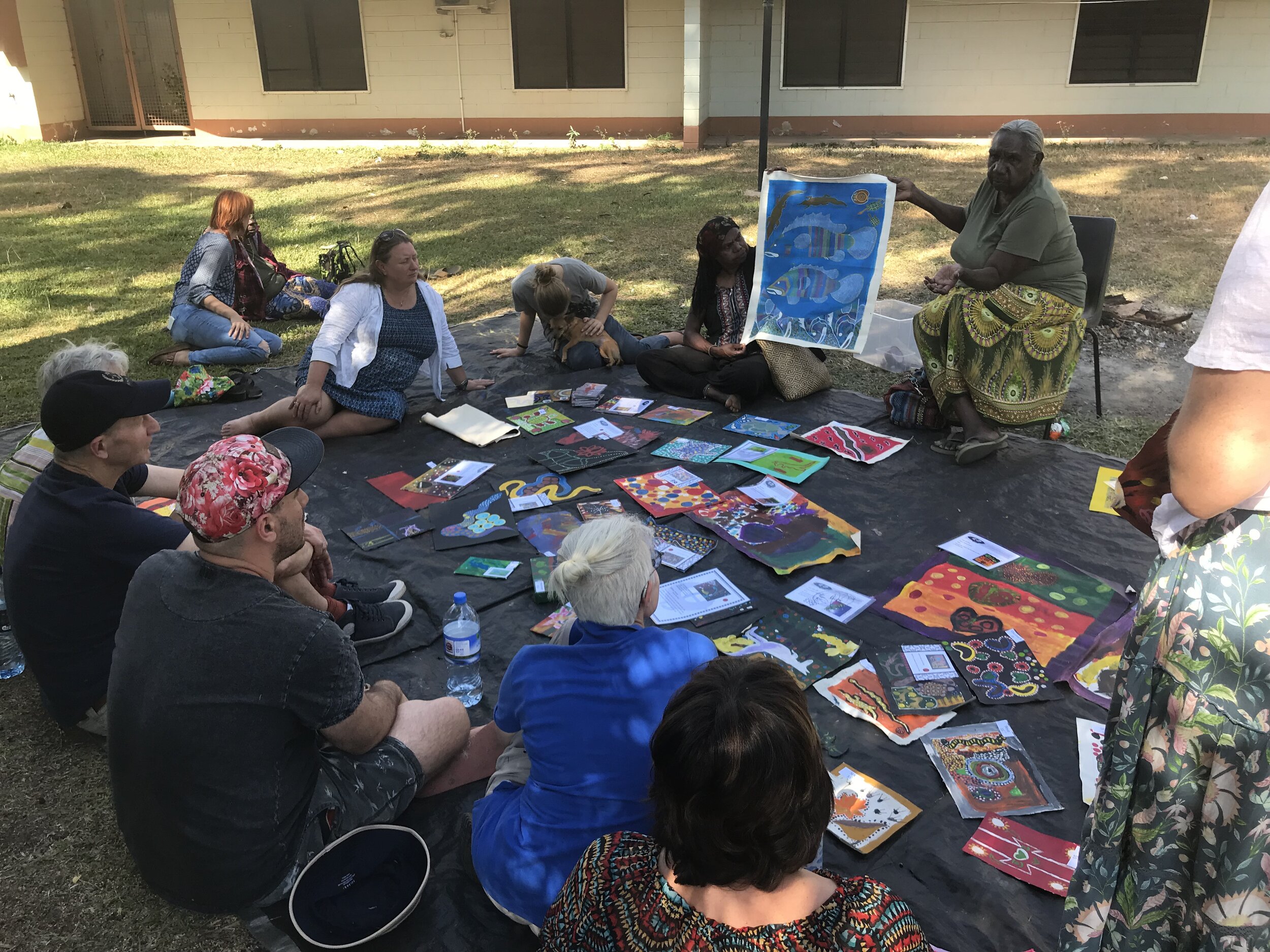
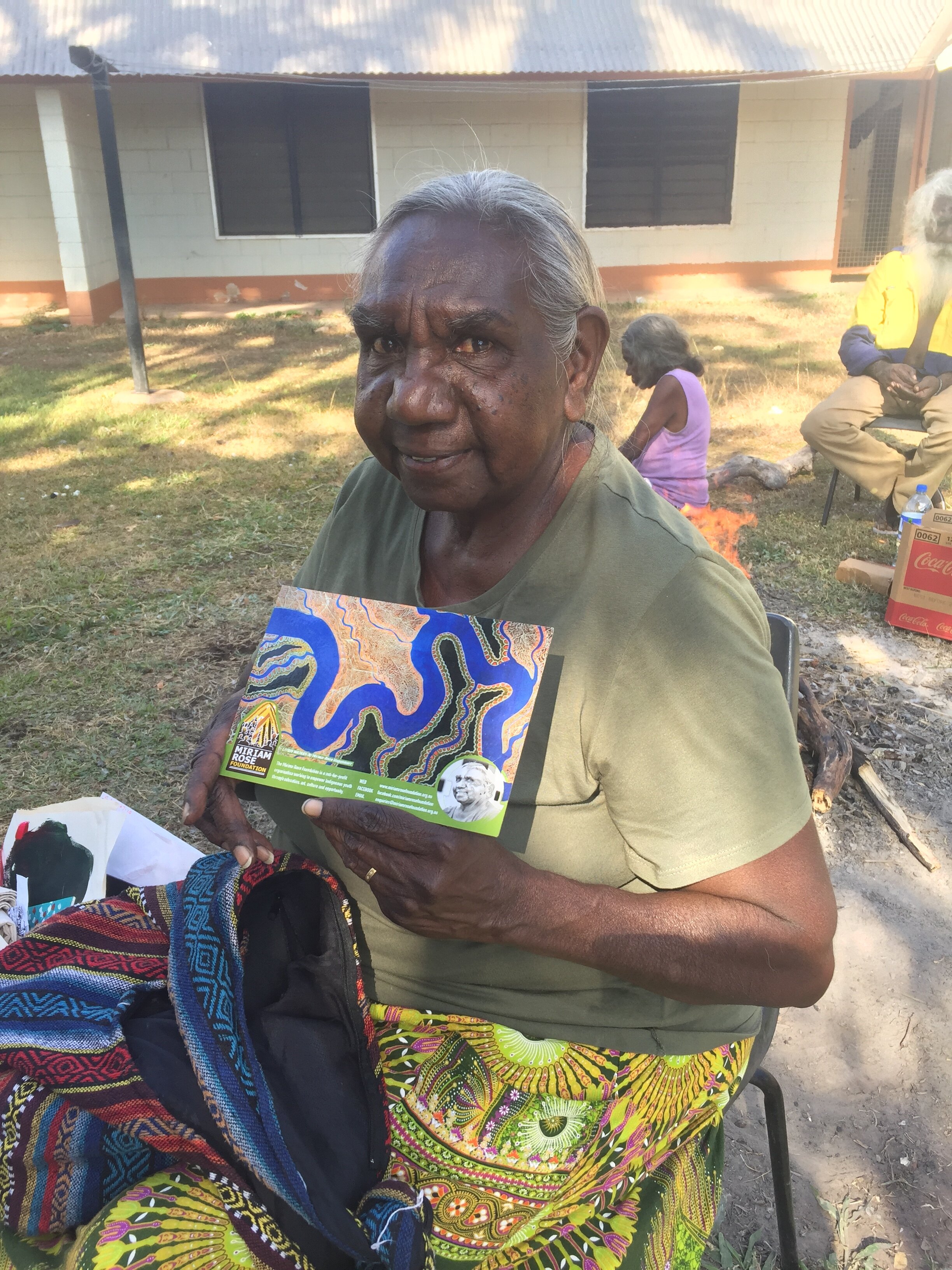
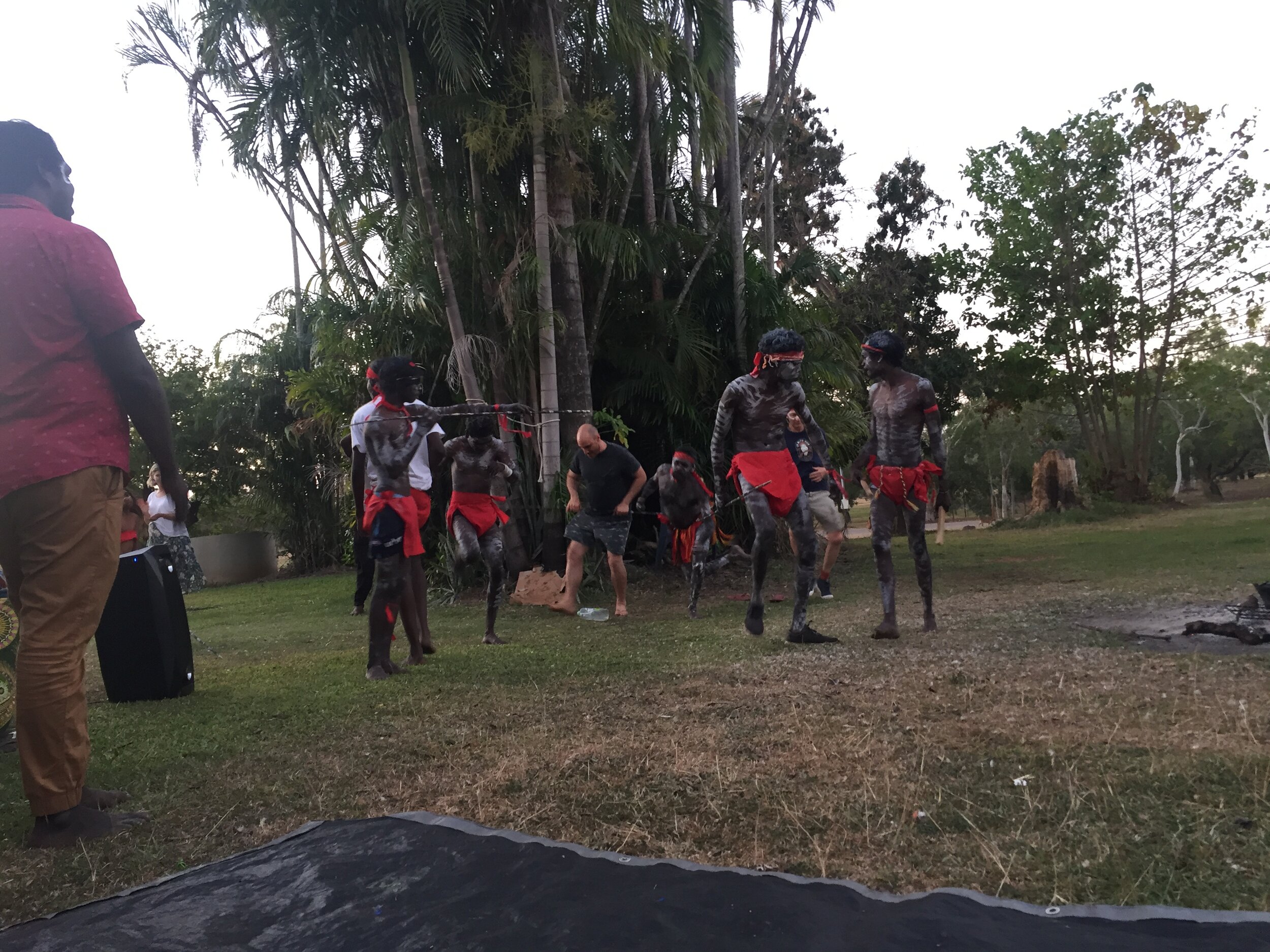
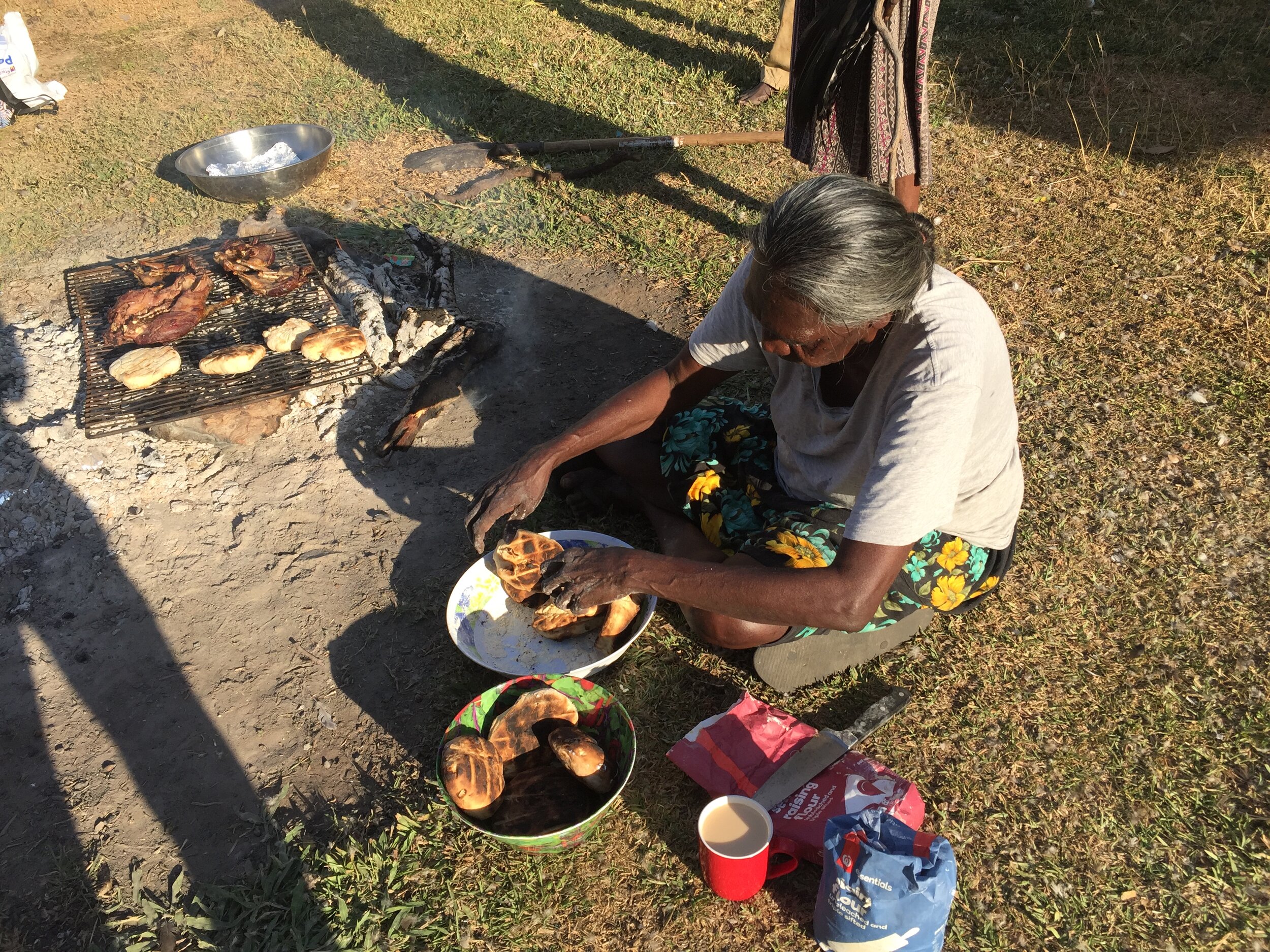
Namburea wangary unying! Or hello in the MalakMalak language [one of many] spoken in Nauiyu, a remote Indigenous community on the Daly River, three hours south of Darwin. We were privileged to meet the elder and artist Miriam Rose Ungunmerr-Baumann AM, who shares the practice of dadirri, plus many others in the community. Known as the Meditation Mob, all nine of us from very different backgrounds, enjoyed three full days here.
‘Dadirri is inner, deep listening and quiet, still awareness. Dadirri recognises the deep spring that is inside us. We call on it and it calls to us.’ It is in everyone. We thought we’d experience dadirri down by the river or under a tree; instead we were immersed in it by sitting with vibrant voices in the community led by Miriam Rose. We were present to a time-rich process of yarning and storytelling to what was happening in Nauiyu - witnessing simultaneous conversations, banter, laughter, tears, singing and dancing. All part of the raw and unfiltered daily community life. We saw deep and respectful listening and were impressed with the community’s strength of belonging and togetherness.
Our first morning saw us taken down to the Daly River for our Welcome to Country. Paddling on the edge, our crowns and bellies were ‘baptised’ by elders, connecting us to Mother Earth and announcing that we were there on Country. Poignant and touching, we felt the spirit everywhere and in everything.
During our sharing, community members would slowly drift into the ebb and flow of the yarning circle. Elders were highly respected with certain laws to follow in sitting and serving. Kinship laws were strong. Women, men and teenage boys and young girls all spoke, some more than others. Leslie, a born mimic and storyteller, was still emotionally raw from her mother being part of the Stolen Generation. She then had us in stitches mimicking young Aboriginal men who, in the past, would answer their white ‘masters’ with a ‘berry good sir.’ Mili, a visiting elder and weaver from Beswick, near Katherine, shared the joy and pain of the footprints from early missionaries: the first lot who were kind and generous, and the later ones who divided communities with their strict Catholic rules. Not to mention the awful repercussions from the 2007 Federal government Intervention. She spoke about Ngalandakku, the need for Universal Peace and Harmony, the importance to forgive and accept (as opposed to forgive and forget) with compassion and gratitude. And then there was John who had survived a crocodile attack through sheer luck, grit and determination by poking his fingernail into the crocs eye! And Brigid, aged 76, still fiery with a cheeky sense of humour who had sadly lost her younger sister only 3 weeks ago.
The community seemed alive with generational mentoring, from Miriam Rose and other elders. As we connected with story, we connected to sorrow too. Miriam took us to the site of a terrible and needless massacre where many years ago about 1000 Aboriginal people had been killed by white men. Very sobering, as we sat and pondered on these lost ancestors whose spirits were there with us. We heard too that the combination of the Federal Intervention and Territory policy, had changed the community from being functional and purposeful to one of zero autonomy causing havoc in people’s lives. High unemployment, lack of purpose and low self-esteem had led to a spate of suicides including Miriam’s nephew who took his life aged 22. We could see how pain travels through families and community. Death was not a taboo subject and her nephew’s taking of his life was mentioned several times. Indeed, his death became the trigger to the birth of the Miriam Rose Foundation and the Nauiyu Action Group.
Yet there was sharing of joy too. The community is abundant in spirit. When Miriam talked about dadirri, she told us ‘the bush is like a book, full of signs.’ And we heard several times ‘we don’t own the land, the land owns us.’ Their connection to Country, family and culture is paramount to healing as the traditional knowledge about trees, animals and plants imparts sacredness and knowledge. We too sensed the importance of nature. Hearing and watching the plethora of birds and their birdsong from the swirling kites, cuckoos and cockatoos to the pied herons and galahs who perched in great numbers on the telephone lines moved us too. A sight to remember! I can’t recall seeing as many birds as here. Kites hovered and swooped to receive their lunch - wallaby innards.
The local Merrepen Arts Centre is a key part of the community. Children are encouraged to paint, and we saw some talented work. On our last night there was a small corrobboree with singing, dancing and bush tucker. We could sense the community spirit as everyone clapped enthusiastically in tune with the music, sang songs and hymns - some written by Miriam Rose - and we danced alongside some of the painted men and women. Not to mention the bush tucker, with whistling duck, magpie geese and roo tail on offer. Strong gamey tastes! We felt a great sense of belonging under the beam of a full moon. It was an honour and privilege to be there.
The three days were intense. Sensory overload. I was challenged by the amount of pain and sorrow the community endures and yet we only touched the surface. I felt uncomfortable with how little money or material things everyone had (and how much I have in comparison) and was moved by their grace and dignity. One lady had 26 cents to her name. I was also challenged by the reality of straddling two worlds – a white person (of English heritage) in an Aboriginal community. However, since returning, both meditation and reflective silence plus acknowledging the profound sacredness in nature has led me to appreciate our deep spiritual connection to each other. Our ‘pilgrimage’ has also triggered a renewed interest and commitment to the Uluru Statement from the Heart https://www.1voiceuluru.org
Our Meditation Mob bonded through our conversations, what we saw and felt. Each day we began with meditation which helped process the reality of what was happening. We read poems or scriptures which encouraged us to tease out what was happening for us internally. And again, at night we would share our thoughts and feelings with honesty, humour and sometimes sadness.
We asked Miriam Rose what could we do? Her responses to ‘overcoming’ included: come and visit, share what you saw here with others, raise funds for the [Miriam Rose] Foundation, support students who have left the community for a secondary education (Adelaide, Melbourne and Lismore). Watch them play footy, befriend them. Some of the group had creative skills such as film making. Use them! The Foundation, which liaises with many support groups, needs funds. https://www.miriamrosefoundation.org.au
Our time in Nauiyu was filled with deep respect and listening. We were all enriched as we travelled alongside each other and those in the community absorbing traditional knowledge through sharing story and song. Time and space are also needed to process and ponder the timeless wisdom we heard and saw, along with some inspired dreaming to help straddle the two worlds and to find peace with it all.